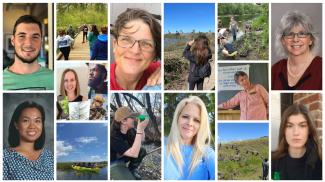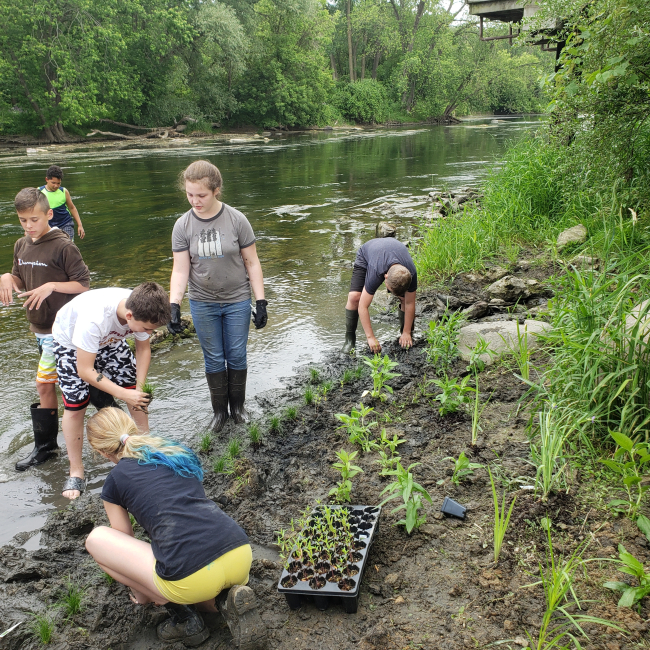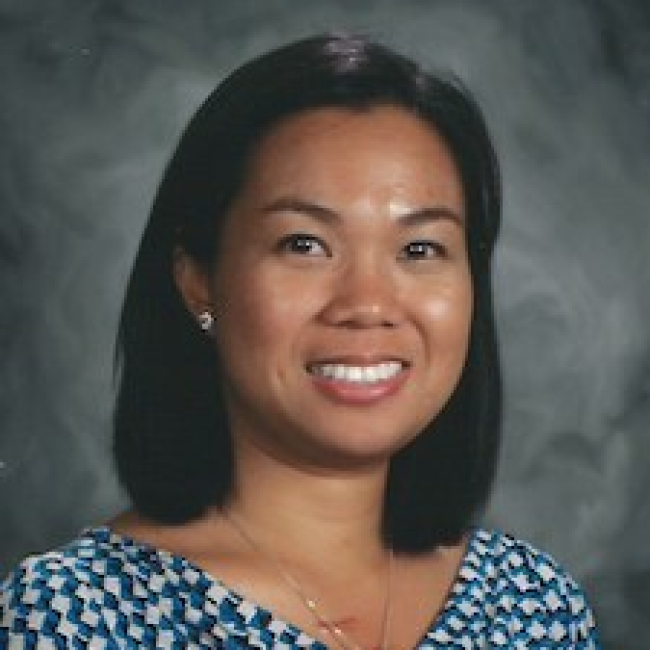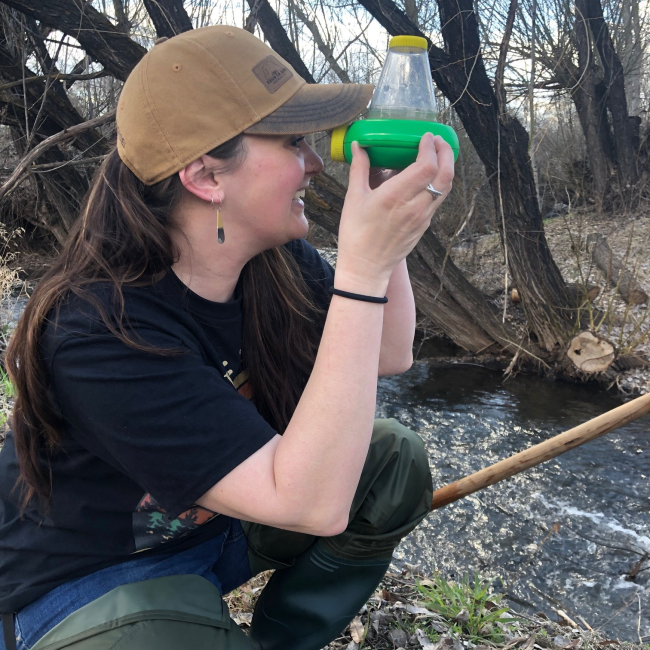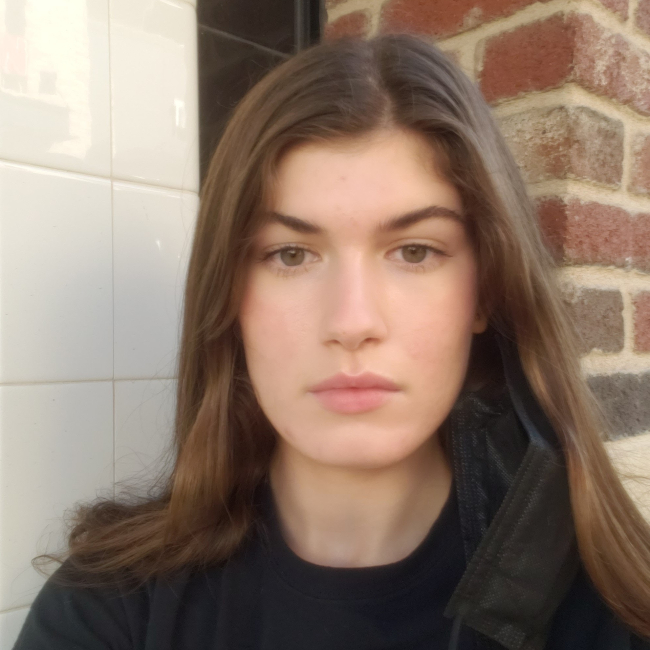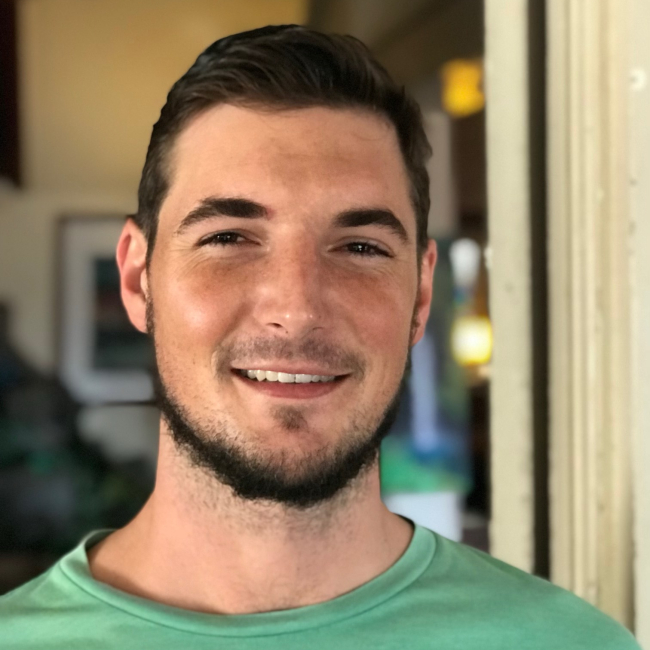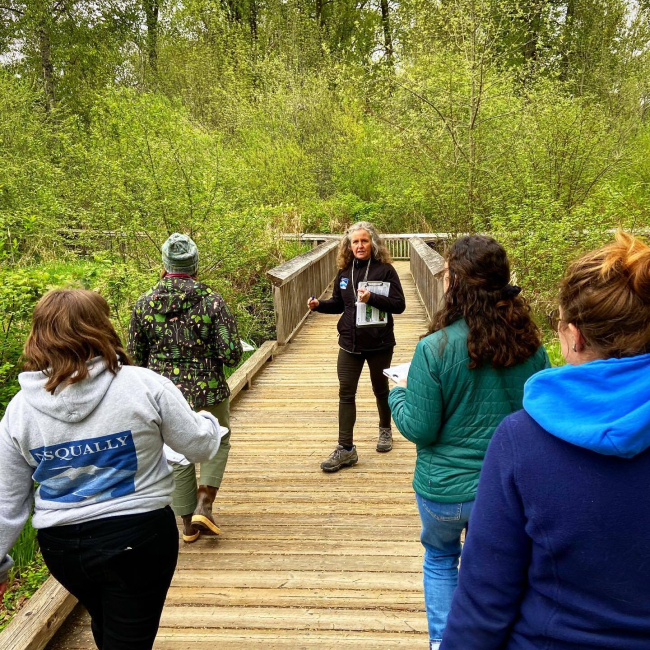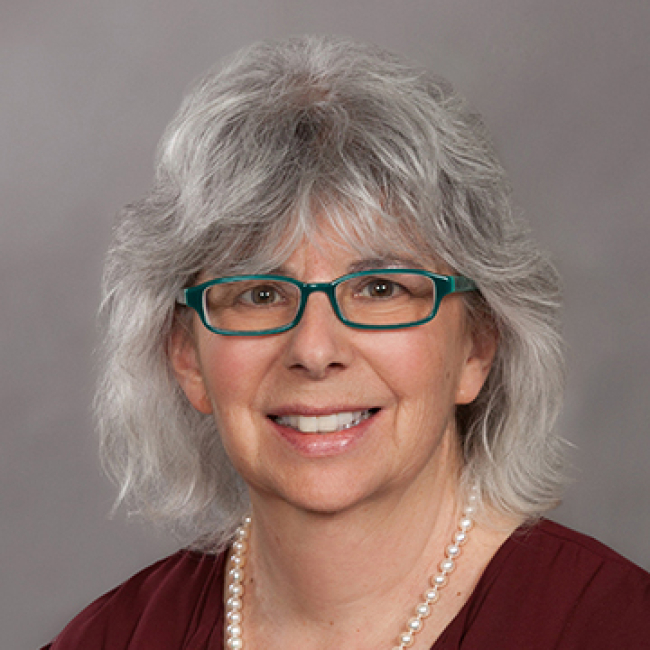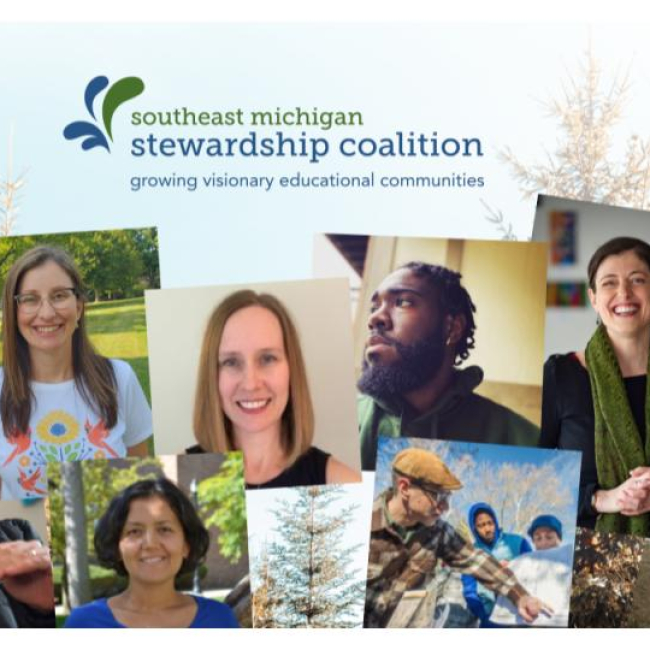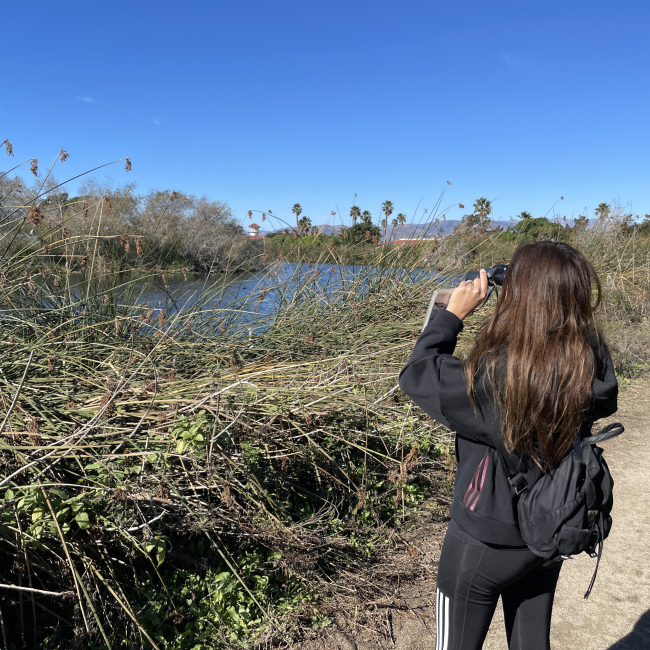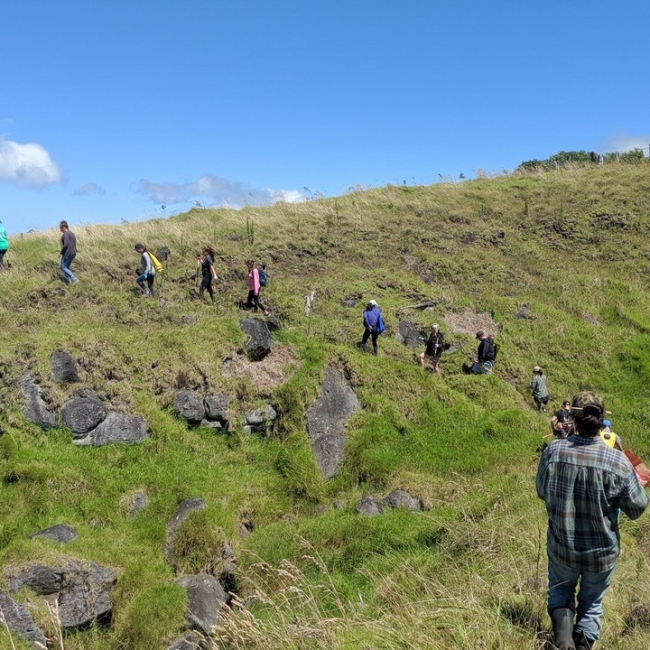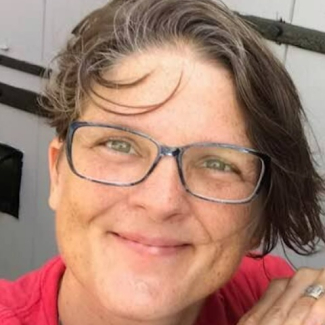
Alicia M. Bartol-Thomas
Not all students find success in the traditional classroom but offering more hands-on experiences has led to more meaningful learning for all students.
What is your current job?
I am a seventh grade life science teacher at Laurel Nokomis School in Nokomis, Florida.
Please share a meaningful experience you had during the NOAA Bay Watershed Education and Training (B-WET) project you participated in.
During my very first outdoor field experience in the fall, I worked with a group of middle schoolers with significant learning and behavior challenges. If anything could motivate that class, some highly engaging, hands-on fieldwork would be my best bet! Living near the Gulf of Mexico, we had started to look at local coastal ecology. The kids were trying to figure out how important the coastal ecosystems and seagrass meadows were to our community. While they were all happy to be out of the classroom, I had no idea if they were really psyched about doing science … And then we started. Within twenty minutes, almost all the kids were eagerly peering into field microscopes at microfauna they had collected from a local freshwater source. One student who was particularly well known for being hard-to-teach – we’ll call him Frank – was so instantly captivated by what he was seeing under the microscope that he pulled out his phone and started capturing video of the microfauna through the scope and phone lenses! His smile was as big as his face, and he was hooked; you couldn’t pull him away from the microscopes, until, that is, we had to go on our second section of the field work, which required getting on a boat.
On the Carefree Learner, our school district’s dedicated marine biology fieldwork vessel, the “new” Frank was almost unrecognizable for the rest of the day as he volunteered for little jobs, participated in collecting and identifying specimens from the seagrasses, and eagerly told the teachers he wanted to go into marine biology. Frank’s excitement about science didn’t fade after the trip. By the end of the school year, in which he excelled in science and cleaned up his act in other classes, the inventor of the Magiscope, the type of field microscope we used, had gifted Frank with one of his own! This complete turnaround of one of the schools most at-risk learners showed me the immense power of experiential learning.
How has the B-WET program helped you grow personally and/or professionally?
I came to science-teaching later in my career and did not have all the science background my peers have. Prior to the B-WET program, I didn’t have any training about watersheds or marine science, and I knew that there were a lot of local environmental science questions I couldn’t answer or teach about. First, the B-WET program educated me about the watershed and exposed me to many nearby fieldwork opportunities that local organizations had already set up in my county. I learned how to do water testing in the field, which my students now do regularly, and I learned all about microplastics, which I knew nothing about before. The direct impact of that learning is that my students love to do campus cleanups now, and they leave all their field sites better than they found them, the most recent being a beach cleanup.
The B-WET program also connected me with numerous ecologists, conservationists, and educators that taught me more about our local watershed and the health of our bay. These connections have been central to my ongoing development as I incorporate environmental education into my curriculum. The experience also helped me envision other field experiences not related to watersheds that I could design following the Meaningful Watershed Educational Experience (MWEE) framework. For example, I recently implemented a paleontology inquiry with community help in which students found and identified fossils at a nearby beach and inferred the paleoenvironment based on the species that they and other fossil-hunters have found there. As expected, we all had a fabulous time and the kids did some great science!
Finally, the B-WET program has made me more passionate about conservation. Personally, I was recently accepted to a short conservation program in Belize in which I will expand my learning on their coral reef and help decrease the invasive lionfish population! I don’t think my life would have taken these turns without the skills and confidence the B-WET program gave me.
Has B-WET changed the way you think about environmental education?
I have always been personally committed to environmental conservation, but all my knowledge about it was self-taught so I was limited in my ability to deliver more in-depth lessons. By participating in the B-WET program, I realized that there is a significant and growing network of like-minded community members and educators in my area that can help me access materials, locations, and experiences rather easily, so I can facilitate learning for my students with confidence, building on the experiences of others and not starting from scratch. More importantly, what I learned from the B-WET professional development really impressed upon me an urgency to make environmental education a priority in my work. My community happens to be located where a large watershed empties into a beautiful sea, and my awareness of the relative health of both has been heightened by this program.
What are the challenges to meaningful education that B-WET has helped you to address?
- Classroom labs and simulations can’t replace fieldwork, and B-WET has given me access to a variety of field experience ideas and locations nearby.
- Most traditional labs for my students are pre-set, and students don’t get as much from the activity if it’s already mapped out for them. The framework of MWEEs is more engaging to the kids because they have more invested in the inquiry.
- Not all kids have equal access to experiences in nature, so those students lack basic background knowledge. MWEEs help them build that knowledge base and it gives students access to places in their community that have environmental significance.
- Students who don’t already come from environmentally conscious families do not necessarily see the value of environmental education. Doing fieldwork helps the kids see the interconnectedness of nature and motivates the kids to value and steward environmental resources responsibly.
- Not all students find success in the traditional classroom but offering more hands-on experiences has led to more meaningful learning for all students.


